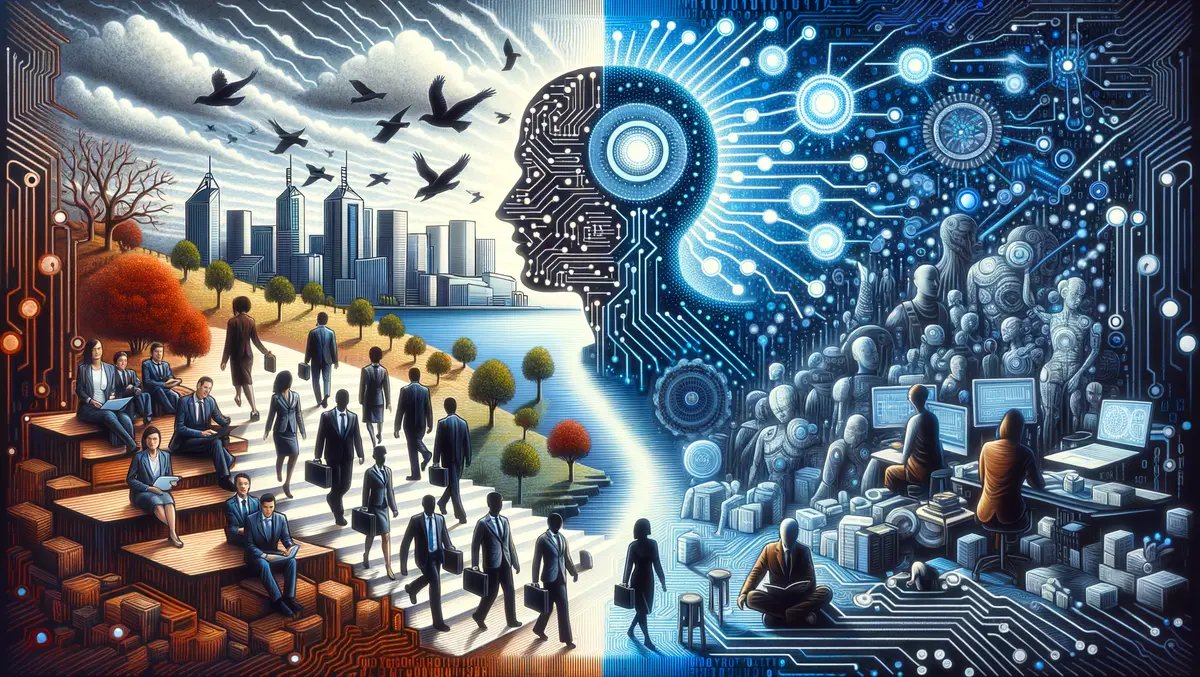
AI-driven job evolution prompts workforce adaptation in Australia
Research uncovered by AI enterprise analytics company Alteryx has disclosed the workforce implications of AI, forecasting a major evolution of labour market roles in Australia due to an AI-driven transformation. As these changes unfold, many current roles will develop and become outdated, significantly altering workforce skills at a remarkable speed. Interestingly, the research, named Defining the Enterprise of the Future, has also illustrated an inconsistency between the skills that are currently given priority throughout recruitment processes and the skills that will be required to fully leverage AI's benefits.
Libby Duane-Adams, Chief Advocacy Officer at Alteryx, emphasised the urgency required for business leaders to take proactive steps towards shaping future workforces. "The rapid rise of AI requires business leaders to build and shape the future workforce now to thrive or risk lagging behind in a future transformed by a seismic shift in the skills needed for the era of intelligence," she stated. Ms Duane-Adams underscored the importance of promoting creative problem-solving cultures, learning to examine business problems analytically and encouraging cooperation at all levels to ensure employees are empowered to utilise data in their daily roles.
The research depicts forthcoming roles within this shifting business environment, forecasting the future composition of IT and data teams and indicating evolving priorities in the technology job market. For example, it anticipates the emergence of roles such as the Chief AI Officer, AI applications engineers, and AI research scientists. Roles such as 'AI whisperers' and 'prompt engineers' may not be in immediate high demand, but over half of the respondents expect these roles to be vital as AI implementation expands.
Looking ahead, traditional roles such as database administration and repetitive coding are predicted to become obsolete in the face of AI advancement. The research indicates that 70% of businesses currently operate in silos. However, about 51% expect future data teams to be decentralised across businesses, allowing data access as necessary.
The study highlights the rising importance of soft skills as we approach an AI world where humans will need to perform tasks AI cannot. Whilst demand has long exceeded supply in the AI skills gap, many businesses still prioritize hard skills over soft skills during recruitment. Only 26% considered preparing for an AI labour market transition as a significant consideration. Creativity was described by 68% of participants as the top skill humans will provide in a future shaped by AI, followed by critical thinking (47%), emotion (41%), and morality (35%). However, only 16% of respondents considered critical thinking among the top three in-demand skills.
Ms Duane-Adams reiterated the necessity of continuous investments in data literacy, upskilling, and training opportunities to create professional trajectories where everyone is 'data literate' and can utilise AI applications for trusted, ethical outcomes. She said, "Not all employees need to become data scientists. It's about championing cultures of creative problem-solving, learning to look at business problems through an analytic lens, and collaborating across all levels to empower employees to use data in everyday roles."


